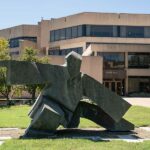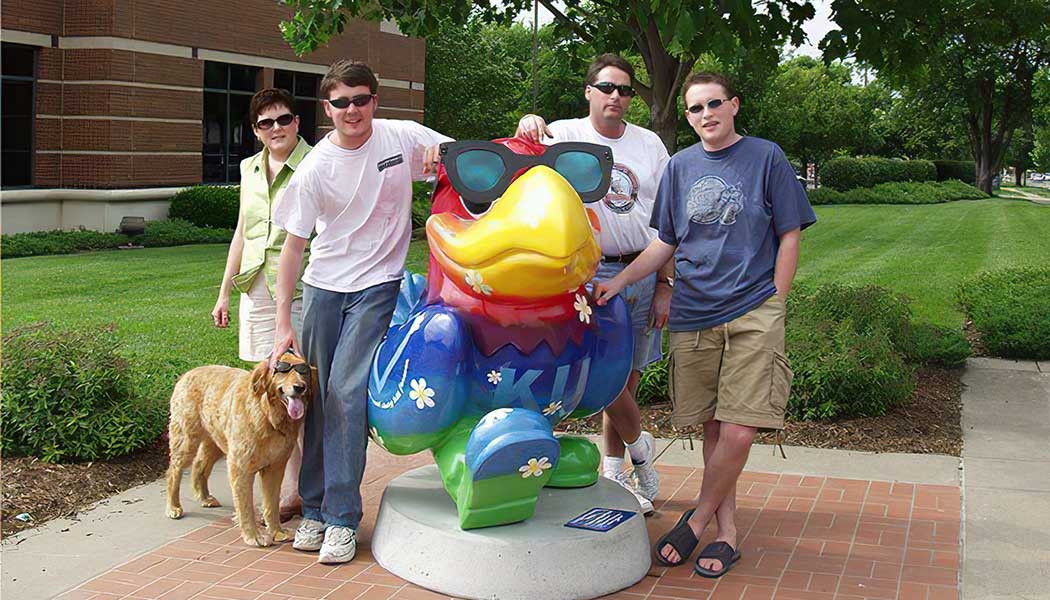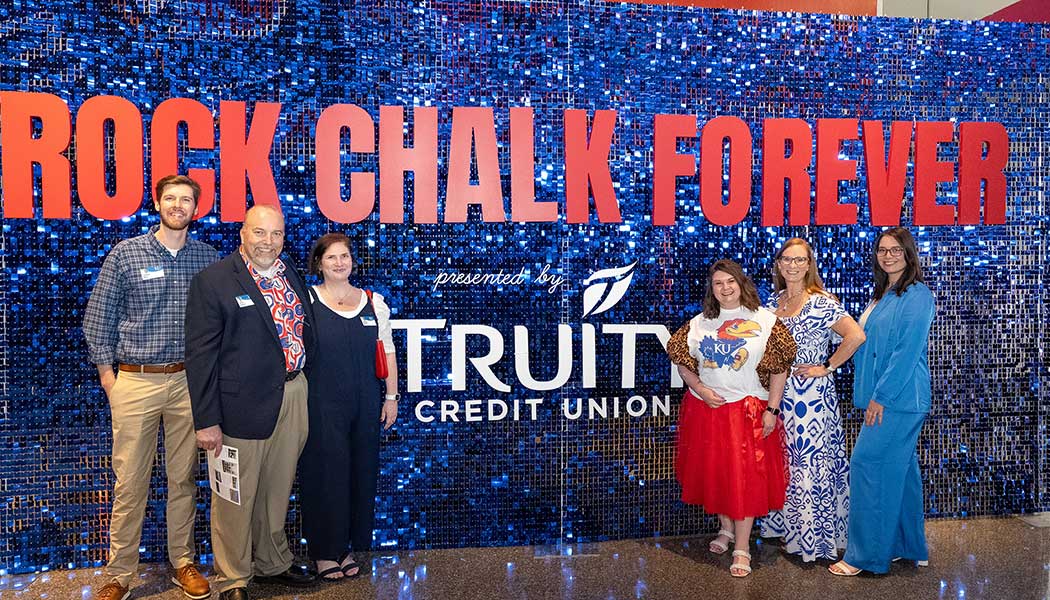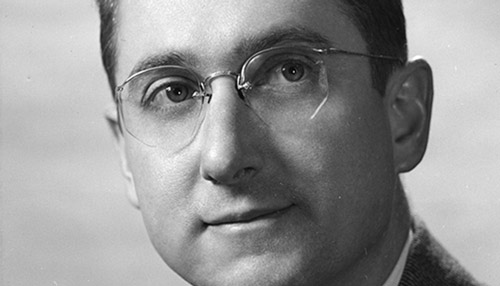Return to the Hill
Bichelmeyer named provost
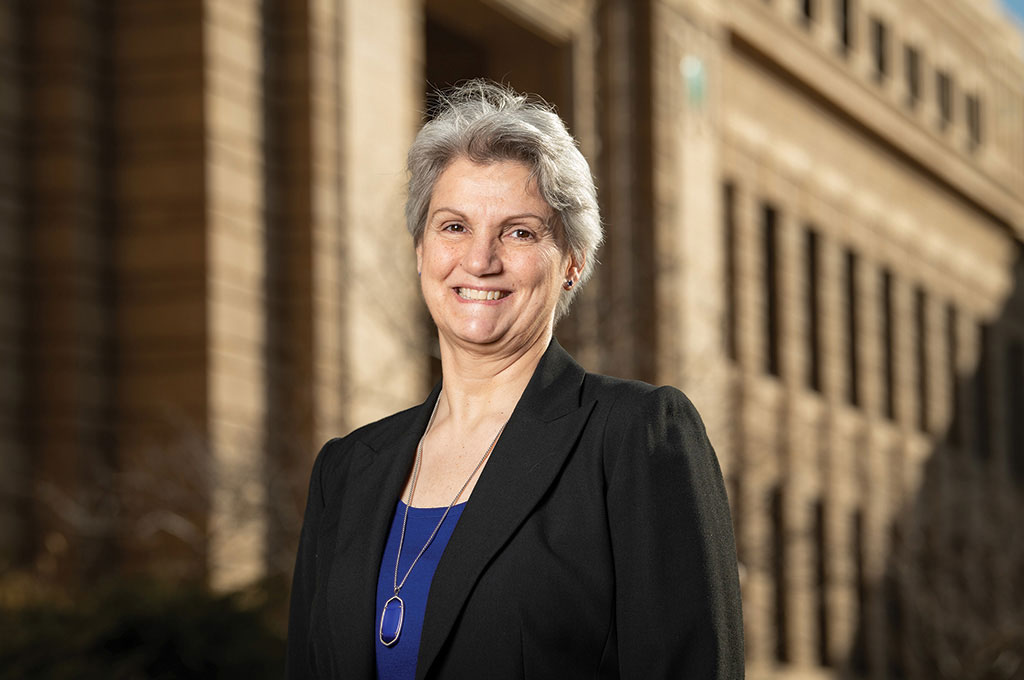
Provost Barbara Bichelmeyer, the youngest in a family of 10 siblings, describes her parents as “the most inquisitive people I ever met.” As children of the Great Depression, however, they were denied any chance at higher education, and her father, John, worked in butcher shops and meatpacking plants across northeastern Kansas until 1946, when he founded the still-thriving Bichelmeyer Meats.
Respecting her father’s wishes, Barbara came to Mount Oread to study journalism.
“I really wanted to major in English because I loved to write,” recalls Bichelmeyer, j’82, c’86, g’88, PhD’92, whose tenure as provost and executive vice chancellor began Feb. 26. “My father, being a man of the trades, said, ‘That’s not going to get you a job,’ so we made a deal that I would major in journalism and I could get a job and move on from that.”
While working as a reporter for the Olathe Daily News and as a founding editor at Intertec Publishing’s Cellular Business magazine—her introduction to the nascent technology revolution—Bichelmeyer also pursued her dream of studying English, earning her second degree in 1986. She supplemented her income by officiating local sports; while working a tournament, she bumped into her high school principal. He surprised her with a job offer.
“The first day, I had two of my nephews and nieces in various classes. I said, ‘I can’t mess up their brains,’ so I ran straight back up to KU and said, ‘I need some courses in teaching.’”
So began a journey that led Bichelmeyer to advanced degrees in educational policy and administration and educational communications and technology; unanticipated instructional work with Fortune 100 companies and the U.S. military; and, in the mid-1990s, a year as the School of Education’s director of technology before transferring her career to Indiana University-Bloomington—a member, with KU, of the prestigious Association of American Universities—where she spent 20 years in assorted research, teaching andadministrative roles.
Bichelmeyer in 2015 joined the University of Missouri-Kansas City as provost, executive vice chancellor and professor in the Henry W. Bloch School of Management. She told the Adams Alumni Center audience at her November candidate presentation that she had not sought out KU’s provost job, but eagerly accepted when invited to apply.
“I’m a little nervous,” she said, “as well as honored and very much excited.”
Chancellor Doug Girod on Dec. 6 announced that he had chosen Bichelmeyer ahead of three other finalists, including Interim Provost Carl Lejuez, who now returns to his role as dean of the College of Liberal Arts & Sciences after 19 challenging months guiding the Lawrence campus through a one-time budget amputation of $20 million.
“I have come to know Barbara as a genuine and compassionate person who cares deeply about students, research and higher education,” Girod wrote in a letter to campus, noting their years of cooperation in advancing regional economic development as leaders of Kansas City’s two most prominent universities. “She is a Jayhawk to the core and committed to this university’s success.”
With the hiring of Bichelmeyer—an Alumni Association Life Member since 1997—KU’s top three leaders are fluent in all things Rock Chalk:
When named chancellor in 2017, Girod was in his 23rd year at KU. Girod in 2014 lured prominent cardiologist Robert Simari, m’86, away from the Mayo Clinic to become dean of the School of the Medicine, and in 2018 Girod named Simari as his replacement as KUMC’s executive vice chancellor.
“What you have is people who have a deep appreciation for, and connection to, this university, writ large,” Bichelmeyer says. “We have a great appreciation for the assets that this university can bring to bear at this moment of change.”
While traditional systems required rigidity in time and place, boring fast-paced students while others were blamed for failing to keep up, technology and systems advances can now flip the paradigm. Rather than “holding time constant and letting achievement vary,” Bichelmeyer says, educators can “hold achievement constant and let time vary a bit.”
Noting at her candidate presentation that support systems and human behavior inevitably collide, she added, “You have to organize so that people have the tools and resources they need, and the incentives they need, and the organizational systems they need, and the culture they need, so that they know how to do things, they want to do things, and they have the ability to do things.
“That’s how my brain thinks all day, every day.”
RELATED ARTICLES
/

